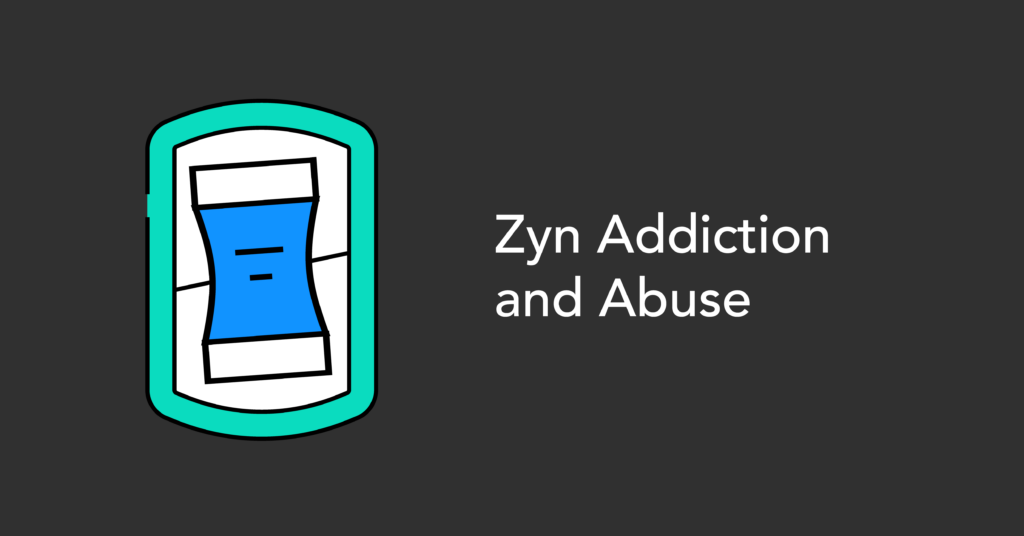Cigarette bans and the social stigma associated with smoking have made smoking alternatives more popular. Nicotine pouches have surged onto the market, with Zyn being one of the leading brands. Zyn is a smokeless, spit-free nicotine pouch designed for easy use. While tobacco-free, nicotine pouch addiction is still a risk. Each pouch has a set amount of nicotine — the addictive, psychoactive ingredient in tobacco. Since Zyn can be used virtually anywhere and comes in a wide variety of flavors, it’s become popular among new nicotine users and smokers trying to quit cigarettes.
The appeal of Zyn is clear. More flavors, discreet use and no restrictions on where and when it can be used it make it a cigarette alternative that’s very attractive to some users. Imagine the appeal of using Zyn on a long flight or during the workday. Avoiding cigarette breaks that could cause financial losses at work is a big motivator. The perception that Zyn health risks are minimal may also play a role in its popularity — particularly among teens and young adults. However, despite their convenience and smoke-free nature, Zyn pouches carry risks that are often overlooked.
Understanding the Risks of Nicotine Pouches
While Zyn and similar products may seem like healthier alternatives to smoking, the effects of nicotine are well-documented. Nicotine alone can be damaging, especially for those who use it regularly.
Nicotine pouches, such as Zyn, are typically marketed as a “clean” alternative to smoking, but clean doesn’t mean healthy. There’s no smoky residue, and a user won’t smell like cigarettes after using a pouch, but nicotine pouches are still addictive. Unlike the tar in cigarettes, nicotine may not cause cancer directly, but it can result in cardiovascular problems, increase blood pressure and harm the respiratory system. Adding the occasional vape or cigarette compounds the issue.
Signs and Symptoms of Nicotine Pouch Addiction
Trying a nicotine pouch for the first time is unlikely to result in instant addiction, but continued use makes addiction a near-inevitability. The more consistently a person uses nicotine pouches, the more likely they are to become addicted. The signs and symptoms of Zyn addiction can be subtle at first, but they can quickly escalate as dependency develops.
The first sign of addiction typically is cravings, which might start as an occasional thought and build to a constant need for more. As the cravings increase, many people use Zyn pouches more regularly. As use escalates, a person may ingest an amount of nicotine equivalent to a pack or more of cigarettes every day.
Cutting back or stopping can be difficult. Withdrawal symptoms may include irritability, anxiety or headaches. Increased appetite and trouble concentrating are also possible symptoms of withdrawal.
If a person reaches for Zyn to get through the day and has developed habits surrounding its use, it’s probably time to look into cessation products.
Health Impacts of Long-Term Use
While the long-term effects of Zyn pouches are still being studied, evidence suggests nicotine pouch addiction can have significant health consequences. Like cigarettes, Zyn health risks include damage to the cardiovascular system, respiratory issues and mood disorders.
Nicotine in any form raises heart rate and blood pressure, ultimately elevating the risk of heart attack and stroke. The high concentration of nicotine in Zyn pouches also increases the potential for nicotine poisoning. Consuming too many pouches in a short period might lead to symptoms such as dizziness, nausea, vomiting, increased heart rate and, in extreme cases, seizures.
Although Zyn isn’t smoked, it still poses many of the same risks to the respiratory system. Inflammation of the airways and lung damage are possible consequences of using this product, though symptoms may not be as pronounced as they would be when smoking tobacco.
When someone first starts using nicotine, it might calm them down and make them feel better, but over time, it may cause a variety of mood disorders. Anxiety, depression and stress are all related to long-term nicotine use and addiction.
In addition to these risks from overusing nicotine, users are also at higher risk of developing addiction to other substances. As many as 75% of those with a substance use disorder have a history of cigarette use. Nicotine use may also impact a person’s odds of recovery, with current smokers about twice as likely to relapse.
Seeking Help and Recovery Options
Anyone with Zyn addiction should seek help before the situation worsens. Recovery from nicotine addiction is challenging, but it’s possible with the right support and resources.
Nicotine replacement therapy is one of the most commonly used supports for those attempting to quit smoking or vaping. It’s also an available solution for those trying to quit nicotine pouches. Nicotine gums, lozenges or patches can help alleviate cravings and withdrawal symptoms while users work toward quitting entirely.
Therapy can be a reliable support for those struggling with nicotine pouch addiction. Cognitive behavioral therapy is often used to treat addiction, helping identify the triggers that might lead to nicotine use.
Medication may be helpful to get a person started on the road to recovery. Zyban and Chantix are two medications that can help with smoking cessation and may be useful for Zyn users.
Replacing a nicotine habit with an innocuous alternative may be a great way to leave a nicotine pouch addiction in the past. Chewing gum, meditating or adopting other mindfulness practices may help.
While Zyn may seem like a safer alternative to smoking, it still presents significant dangers, especially with consistent use.

